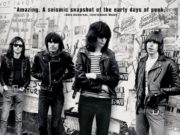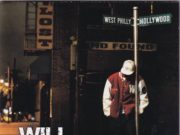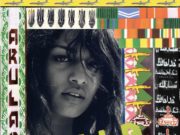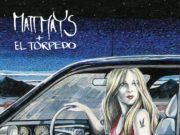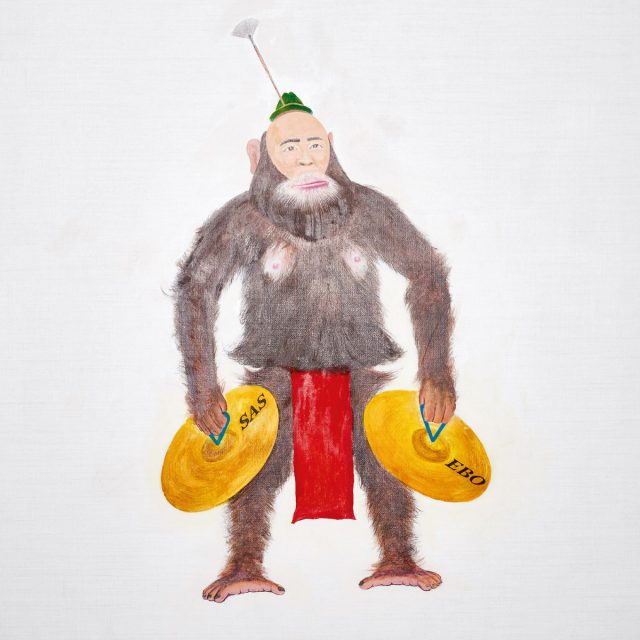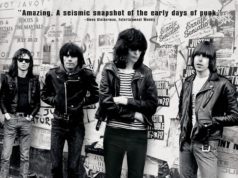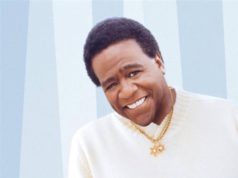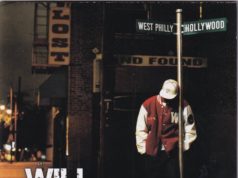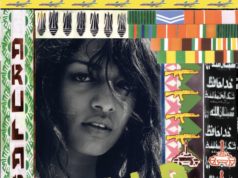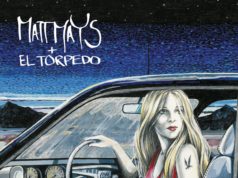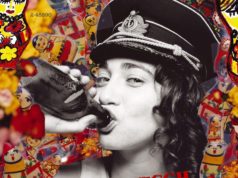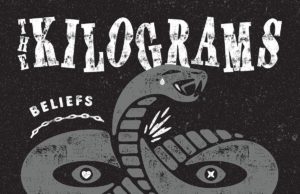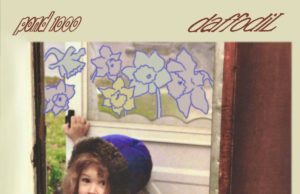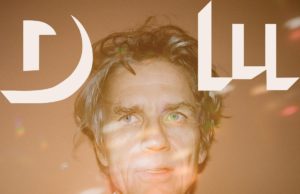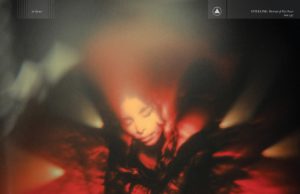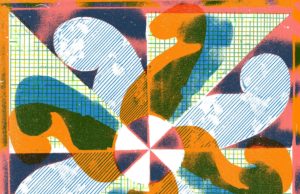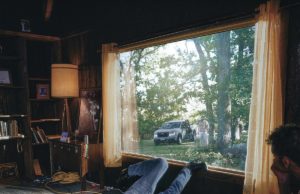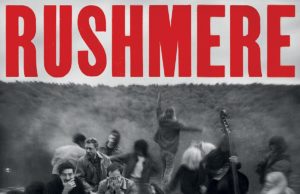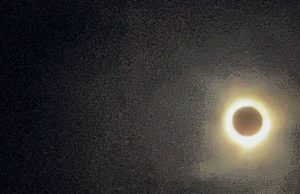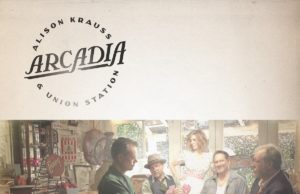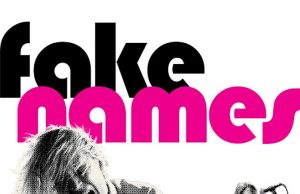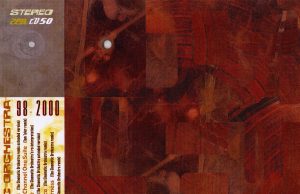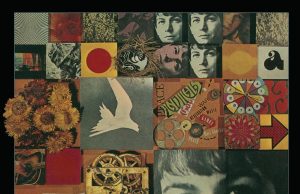THE PRESS RELEASE: “In place of the usual info for a commercially-available album …
Reports of American fleet activities around the Japanese Bay in Munich’s Westend. Dawn is breaking — quickly! Foghorns boom from distant ships, attracted by a crankshaft close to the ear, which dawns on and off as a stoically-continuous bass guitar motor, like a blues riff without a chord progression, far from the schematic nature of the blues … And yet, with the onset of a magic formulaic chant — Portamento, close to a tribal, Malian desert blues. The ships’ horns and the crankshaft send codes — it’s always the same code: Twilight, twilight, it dawns and dews, it pulsates and unsettles! A theatrical backdrop is being assembled here.
The foghorns are already turning into alpine horns, whose waltzes remain in step, when the first light breaks on the surf with a ghostly glissando, and distant cruisers and star destroyers are turned into model paddleships. Each bottle’s neck is the extension of a tanker tube, each string a hair-fine rope that lashes up the rigging — all in miniature. There follows the humming of propellers, threats from the air, the vocal cords tearing and hissing, they still shake, they are already ebbing — the Pacific detonations.
The city of Sasebo was founded in 1902 as a naval base. Japan’s imperial colonial ambitions were immense at the turn of the century, and from then on these ambitions were unchecked until they were defeated by the Americans in the middle of the 20th century; In June 1945 48% of Sasebo was destroyed by an American attack, only to be brought back into service immediately afterwards by the US Navy. Today Sasebo is a twin town to Albuquerque in the U.S. state of New Mexico, and home to Japan’s best hamburgers. Albuquerque with her series of unsolved murders, and Sasebo with her towering burgers — leaden, gloomy Twilight Zones.
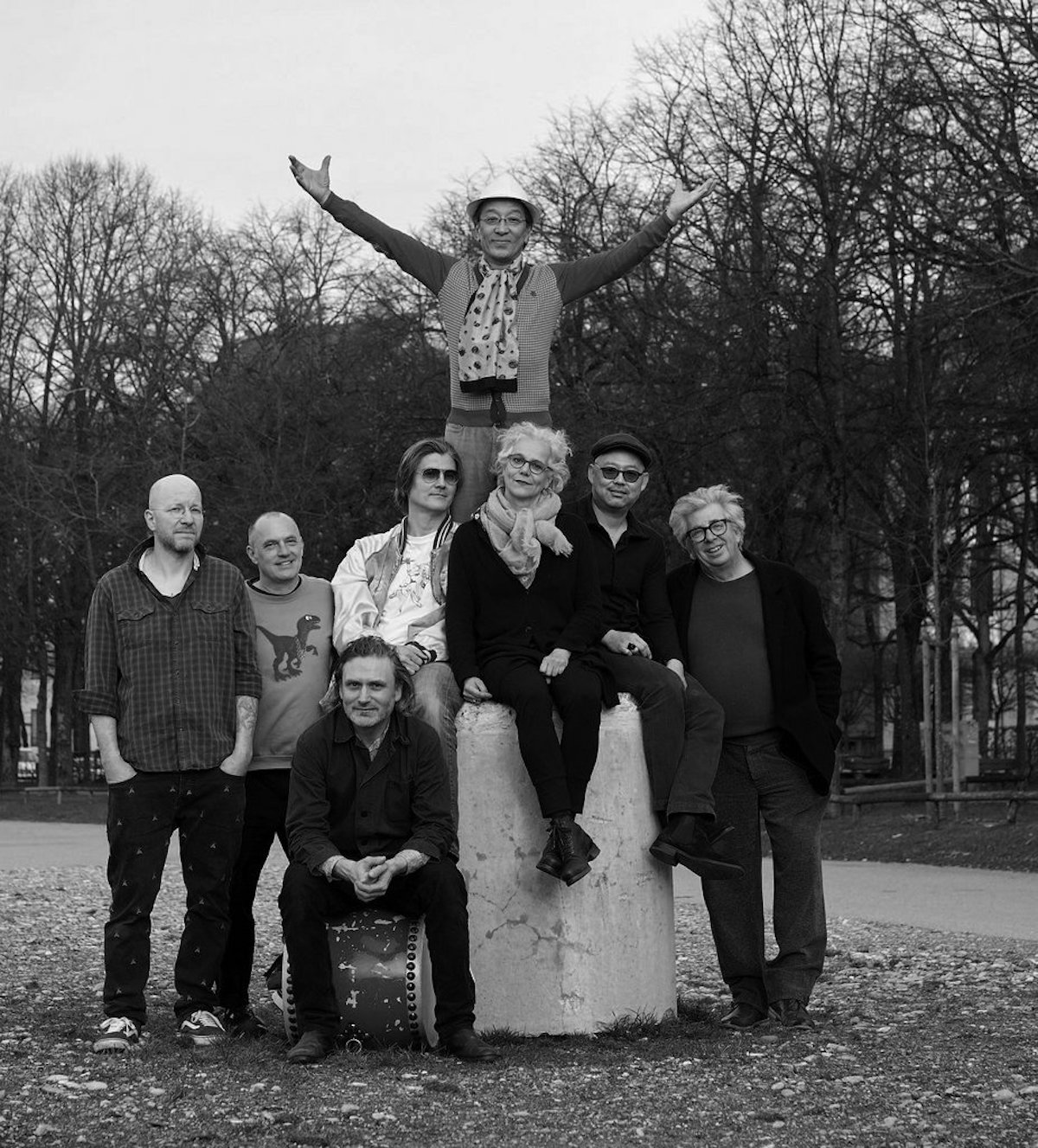
As an effect, the dawn twilight is easily simulated — by squinting your eyes. Gangsters and yakuza like to do this in films, to be always able to see their opponents and their audiences at dusk. And so that they look cool! Sasebo’s songs have the creeping body movement of such a gangster, with narrowed eyes, and carry titles like Cobra, Gagac, Gogo and Coja, all of which sound like synonyms for the word cool. Carl Tokujiro Mirwald is this evil boss, the Great Robber Tokujiro, who is absolutely to be feared. And at the same time it is of course hilarious when the boss announces in the piece Unsari: “I’m fed up with such a life, just having to obey from morning to night.”
The behavior of Tokujiro’s opposite number Toshio Kusaba is generally animated by a comic theatricality, for example when he plays Tokujiro’s lover in the play Gagac, who begs her adored one to kill ‘her’ if the latter does not return ‘her’ love. And in Nechan there is a traditional geisha game between the two, where the loser of each round of ‘paper, stone and scissors,’ or ‘fli, fla, flu’, has to strip one item of clothing. The gang lurking outside resembles the street-rascals peeking out from behind advertising columns in Walter Trier’s illustrations for Emil and the Detectives, except that they are not detectives, but are themselves crooks. When the boss summons them from their covers with his whistle, everyone parades down the street in a gorgeous, mischievous choir, with the sole aim of courting the ‘beautiful sister,’
In Gogo, sung by Tinka Kuhlmann, she ponders how a bird can be made to sing. Gogo is one of the courtly songs written by guitarist Yutaka Minegishi, all of which act as a counterbalance to the daring pieces by guitarist Ivica Vukelic, which in turn originated more from American traditions — from black underclass traditions — the real folk music, mind you. Everything on this album has two faces. And each of these two faces again has two faces … The yacht christened Monkey Business was the location for the downfall of the American Democratic Party candidate Gary Hart when he used it to exercise and satisfy his extramarital mating urge during his 1987 presidential campaign. And Monkey Business is also the title of The Marx Brothers’ slapstick farce set on the high seas, in which the brothers as passengers onboard an ocean liner get stuck between the gangs of two rival mob bosses. In the end, of course, they manage to enter America thanks to their clever tricks.
The group Sasebo has been playing sneaky games with cultural clichés for some years now. After two medium-format vinyl releases on the Echokammer label, the Gutfeeling label is now launching its first large format album. This mischievous musical circus was recorded, mixed and policed by Zoro Babel and Manu Rzytki. Just come on in and listen for yourself — listen!”


